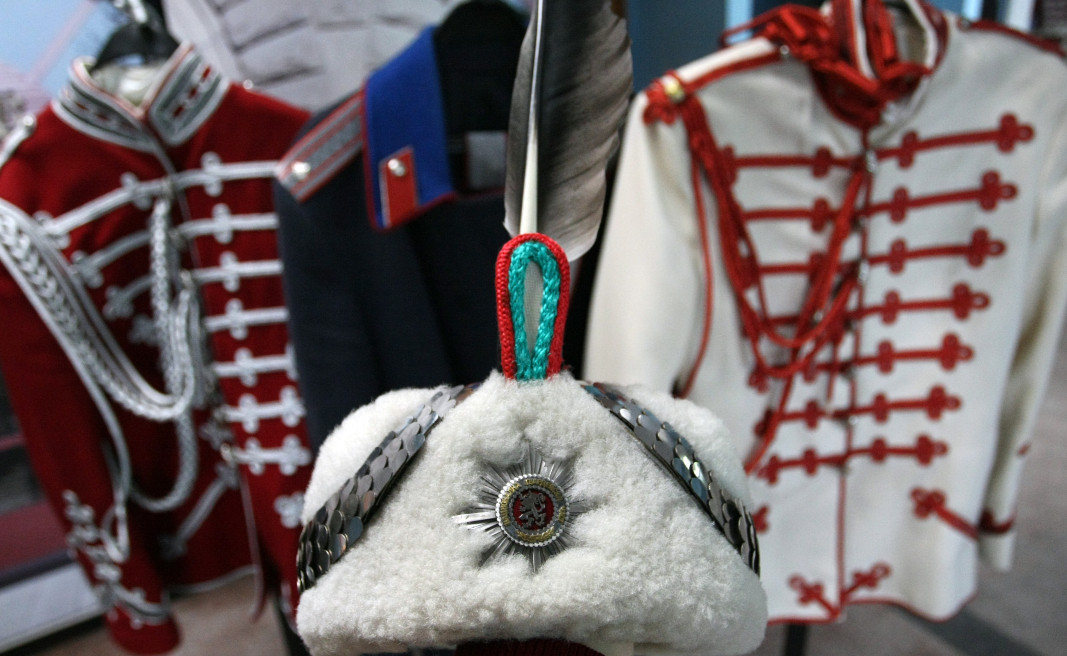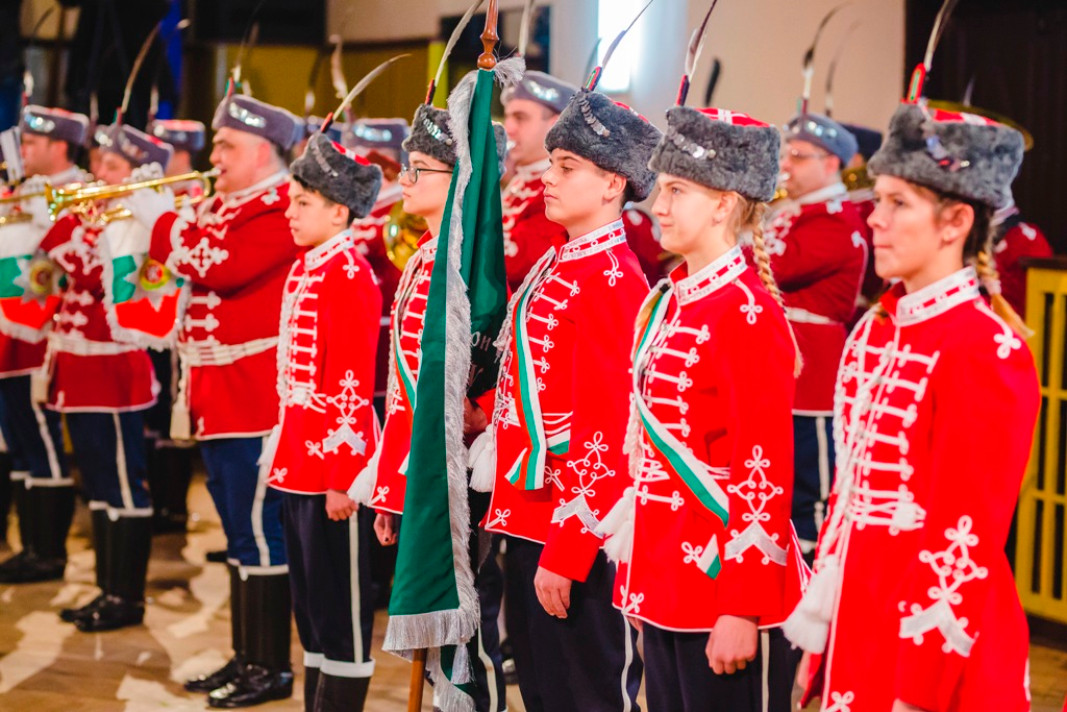Every country that has its own army also has a unit that performs representative functions among other duties. In Bulgaria, this role is entrusted to the National Guards Unit, which was established back in 1879, immediately after the arrival of Prince (Knyaz) Alexander I of Battenberg. The most important task then was to ensure the personal safety of the Bulgarian Knyaz. The soldiers perform their duties in special uniforms, created for the first time in 1883 and remaining unchanged to this day. In an interview with Radio Bulgaria, the deputy head of the National Military History Museum, Deyana Kostova, reveals interesting facts about the creation of the guards’ uniform:

"National symbolism is interwoven into the uniform. Credit for its creation goes to Battenberg himself, who personally participated in the creation of the first drawings of models and in the selection of the cloth for the uniform. When these first drawings of the Guards uniform were created, they were based on the cavalry uniform. One of the notable elements in this uniform is the guard's cap decorated with the Star of the Order of St Alexander and an eagle’s feather, which is a symbol of the proud Bulgarian spirit."
The Guards have a winter and summer uniform that consists of a cap, jacket, dark blue breeches with silver trim and black boots with spurs. The winter one has a crimson cloth jacket with ornaments on it and a gray cap, while the summer one is white with red ornaments and a white cap.

72 Guards died for the honor and glory of the homeland in the period 1885 to 1945. "The monument built in their memory is an expression of gratitude and reverence for the feat of the fallen soldiers of the Guards Unit, whose names will not be forgotten," says the Chief of Staff of the First Guards Battalion - Major Nikolay Stoyanov and adds:
"It was erected at the end of 2005, with the assistance of the National Donor Fund ‘13 Centuries Bulgaria.’ Its author is sculptor Seyfettin Shekerov-Sefo. The memorial combines images of the Star of Alexander and the eagle’s feather, which are cast in bronze. On both sides of the feather rise two concrete columns with attached granite plates with the names of 72 Guardsmen who lost their lives in the wars. The motto of the National Guards Unit ‘For the Honor and Glory of the Motherland’ is written under the star, and a laurel wreath symbolizing the bravery and heroism of those who fell in battle is attached to the back of the monument.”

Along with the tasks arising from the Law on the State Protocol and the Statute of the Armed Forces of the Republic of Bulgaria, the National Guards Unit also has leading role in the creation of the so-called student guard units. The first of them was established in Kardzhali in November 2006, and today there are units in another 16 Bulgarian cities, including Pleven, Burgas, Smolyan, Veliko Tarnovo, Ruse, Gabrovo, Gotse Delchev and others.

“We must say that these units have an extremely beneficial effect on education, which starts from an early age,” Major Stoyanov says. “The goal is the preservation of our history and the resurrection of traditions, as well as teaching love for the Motherland in the young generation. It takes place under the auspices of the President of Bulgaria Rumen Radev and with the support of the Ministry of Defense."
See also:
The President of the Republic of Bulgaria Rumen Radev has congratulated all Bulgarians at home and around the world on the arrival of the New Year 2025 and wished them peace, health and prosperity. "The world is sending off a year..
Traditionally, the citizens of Sofia and guests to the capital can welcome the New Year 2025 together at the central Knyaz Alexander I Battenberg Square. The celebration today, December 31, begins at 21.30. Some of the most popular Bulgarian pop and..
On the eve of the New Year, the most beautiful "gelina" bride of the last 4 years is chosen in the Bulgarian-Mohammedan village of Ribnovo, in south-west Bulgaria. "Gelina" is the name given to brides in the region. It is a unique tradition, where..
The clock on the facade of the State Puppet Theatre in Stara Zagora has long been a symbol of the city. It was set in motion in 1977 and is unique on..
The year 2024 was marked by political instability and confrontation - not so much over ideas for solving Bulgaria's long-standing governance puzzle, but..

+359 2 9336 661
